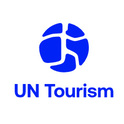UN Tourism and World Sustainable Hospitality Alliance to Advance Common ESG Framework
UN Tourism and the World Sustainable Hospitality Alliance will work together to implement a common framework for Environmental, Social, and Governance (ESG) for the sector.
The ESG Framework for Tourism Businesses, developed by UN Tourism in collaboration with the University of Oxford SDG Impact Lab, is aimed at helping enterprises across the sector measure and report their sustainability efforts and impacts more consistently and reliably. With this new agreement, UN Tourism will work alongside the Alliance to test the Framework, refine its indicators and relevant tools, and foster stakeholder engagement.
The ESG Framework for Tourism Businesses is set to transform the tourism sector by establishing harmonised and essential standards for companies to assess and report their sustainability efforts. The collaboration between UN Tourism and the World Sustainable Hospitality Alliance highlights how commitment and strategic partnerships can drive alignment and significant progress in ESG. UN Tourism Executive Director Zoritsa Urosevic
Collaborating with UN Tourism on the development of a harmonised ESG Framework represents a significant milestone for the global tourism industry. This partnership not only underscores our commitment to sustainability but also highlights the collective power of our industry to drive meaningful change. By establishing standardised metrics and fostering greater alignment between the private and public sectors, we are paving the way for a more sustainable and resilient future for tourism worldwide. Glenn Mandziuk, Chief Executive Officer of the World Sustainable Hospitality Alliance
Partners leverage fields of expertise
The partnership comes as tourism businesses face increasing pressure to disclose their ESG actions and impacts. The ESG Framework for Tourism Businesses is rooted in the Statistical Framework for Measuring the Sustainability of Tourism (SF-MST), endorsed by the UN Statistical Commission with unanimous support from all 193 UN Member States, and strives to bring greater and much-needed alignment between private and public sector data.
Alongside this, the Alliance's Net Positive Hospitality Pathway and Framework is designed to harmonise metrics and key performance indicators (KPIs), develop standards, and streamline reporting within the hospitality industry.
Related Links
- ESG Framework for Tourism Businesses
- Statistical Framework for Measuring the Sustainability of Tourism (SF-MST)
- UN Adopts a New Global Standard to Measure the Sustainability of Tourism
About UN Tourism
The World Tourism Organization (UN Tourism), a United Nations specialised agency, is the leading international organisation with the decisive and central role in promoting the development of responsible, sustainable and universally accessible tourism. It serves as a global forum for tourism policy issues and a practical source of tourism know-how. Its membership includes 166 countries, 6 territories, 2 permanent observers and over 500 Affiliate Members from the private sector.
Media enquires: [email protected]
UN Tourism Communications Department
+34 91 567 8100
UN Tourism
